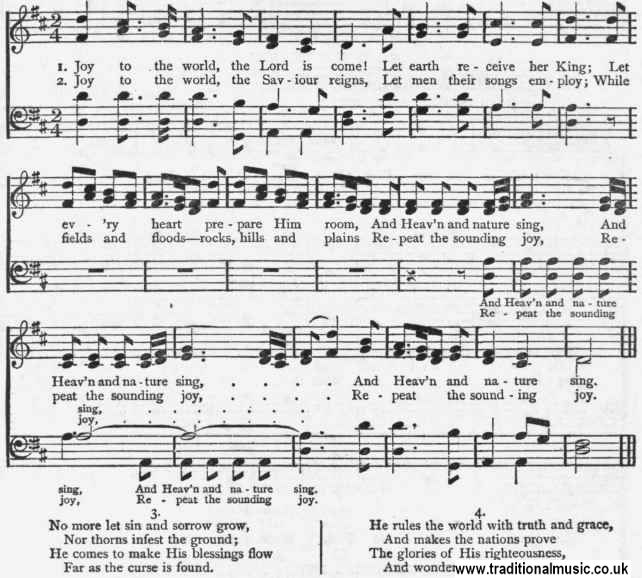Favorite Songs and Hymns For School and Home, page: 0072
450 Of The World's Best Songs And Hymns, With Lyrics & Sheet music for voice & piano.
| Share page | Visit Us On FB |
|
72 |
FAVORITE SONGS FOR SCHOOL AND HOME |
|||
|
In his very valuable work upon the authorship and history of English hymns, Rev. Samuel W. Duflield makes special mention of no less than one hundred and fifteen hymns and metrical versions of psalms by Isaac Watts. This voluminous hymn-writer came of sturdy stock. He was the grandson of Thomas Watts, a naval officer, who blew up his ship during the Dutch War in 1656, perishing with all on board. His father, Isaac Watts, inherited the family traits of courage and resolute purpose. He was a deacon in a Congrega�tional Church at Southampton, in what were stormy days for the nonconformists. During this time of agita�tion his son Isaac, the oldest of nine children, was born July 17, 1674. The deacon and his pastor were im�prisoned for nonconformity, and the child, then a babe |
at the breast, was often taken by his mother to the jail door, where she was accustomed to sit upon a stone near the entrance, with him in her arms. In 1683, his father was again imprisoned for six months for the old offence, and on his release was forced to "live privately in London for two years." Meanwhile Isaac had gone on with his studies. About this time he had the op�portunity of a free education if he would give up non�conformity but, being a staunch little Dissenter, he de�clined the offer, and went to London where he continued his studies under Mr. Thomas Rowe until 1694. Here he became attached to Miss Elizabeth Singer and pro�posed marriage, which she declined. This lady after�wards married his instructor, Mr. Rowe. He always remained a bachelor. His earliest hymn was occasioned |
|||
|
JOY TO THE WORLD. |
Isaac Watts, 1709. G. F. Handel. "Antioch.' |
|||
 |
||||
|
by a dislike of the verses sung in the meeting-house at Southampton. In 1696, he became tutor in a family at Newington. Here, for the children, he wrote of the �' little busy bee," " the dogs that delight to bark and bite," "the voice of the sluggard," as well as that best of cradle-songs, " Hush, my dear, lie still and slumber." It was at this time that he wrote the " Divine and Moral Songs." He entered the ministry in 1698, preaching his first sermon at Mark Lane, London, but physical infirmity interfered much with this work. In I7f3, after one of his distressing attacks of fever and neural�gia, Sir Thomas Abney took him to his own home. Long afterwards he said to Lady Huntingdon: " This day thirty years I came hither to the house of my good |
friend, Sir Thomas Abney, intending to spend but one single week under his friendly roof, and I have ex�tended my visit to the length of exactly thirty years." He published his hymns and psalms from time to time, in book form, and so widely known are many of them in the Christian Church that they are to be found in almost every hymn book. He died Nov. 25, 1748, at the age of seventy-five. In person Dr. Watts was of spare habit, and hardly more than five feet in stature, so that he was known as " the little doctor." He was an able writer and a good speaker, with an unusually fine voice. If it be a greater thing to write a noble hymn, that is sung throughout the world, than to rule a nation wisely, then is he one of the world's great benefactors! |
|||
|
/ |
||||